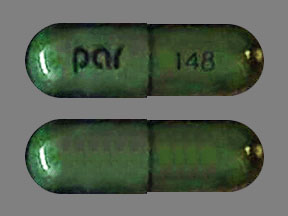
Dexilant Coupons & Savings Card – Discount Prices from $81.62
Brand for: Dexlansoprazole
My prescription
Edit
60MG, Dexlansoprazole (30 Capsule Delayed Releases)
Select pharmacy

CVS
$85.16
COUPON PRICE
Walgreens
$81.62
COUPON PRICE
Albertsons
$144.98
COUPON PRICE
Walmart
$213.13
COUPON PRICEDexilant savings card
Show this card to your pharmacist
Walgreens
$81.62
BIN
ID
PCN
GRP
011867
LH29213959
HT
LABH001
Powered by
Related proton pump inhibitors prescriptions
More prescriptions for heartburn
Related proton pump inhibitors prescriptions
More prescriptions for heartburn
Dexilant (Dexlansoprazole) dosage forms
Dosage Quantity Price from Per unit 30MG 30 Capsule Delayed Releases $85.16 $2.84 30MG 90 Capsule Delayed Releases $226.89 $2.52 60MG 30 Capsule Delayed Releases $85.16 $2.84 60MG 90 Capsule Delayed Releases $226.89 $2.52
| Dosage | Quantity | Price from | Per unit |
|---|---|---|---|
| 30MG | 30 Capsule Delayed Releases | $85.16 | $2.84 |
| 30MG | 90 Capsule Delayed Releases | $226.89 | $2.52 |
| 60MG | 30 Capsule Delayed Releases | $85.16 | $2.84 |
| 60MG | 90 Capsule Delayed Releases | $226.89 | $2.52 |
Why was Dexilant taken off the market?
Dexilant has not been taken off the market. It is still available and prescribed for the treatment of certain gastrointestinal conditions, such as gastroesophageal reflux disease (GERD). If there are concerns about its availability or any specific issues, it is advisable to consult a healthcare professional or pharmacist for the most current information.
What is the most common side effect of Dexilant?
The most common side effect of Dexilant (dexlansoprazole) is diarrhea. Other frequent side effects may include nausea, abdominal pain, and flatulence. It is important for patients to consult their healthcare provider if they experience any side effects.
Is Dexilant better than Omeprazole?
The effectiveness of Dexilant versus Omeprazole can vary depending on the individual's specific condition and response to treatment. Both medications are proton pump inhibitors (PPIs) used to treat conditions like gastroesophageal reflux disease (GERD). Dexilant has a dual delayed-release formulation, which may provide longer-lasting acid control for some patients. However, Omeprazole is a well-established and widely used PPI. The choice between the two should be based on a healthcare provider's assessment of the patient's needs, medical history, and any potential side effects. It is important for patients to consult with their healthcare provider to determine which medication is more suitable for their condition.
Is dexlansoprazole exactly the same as Dexilant?
Yes, dexlansoprazole is the active ingredient in Dexilant. They are essentially the same in terms of the active component, with Dexilant being the brand name for the medication containing dexlansoprazole.
What happens when you stop taking Dexilant?
When a person stops taking Dexilant, they may experience a return of symptoms that the medication was managing, such as heartburn or acid reflux. In some cases, there might be a rebound effect, where the stomach produces more acid than before, leading to increased symptoms temporarily. It is important to consult a healthcare provider before discontinuing Dexilant to discuss a proper plan for tapering off the medication if necessary.
